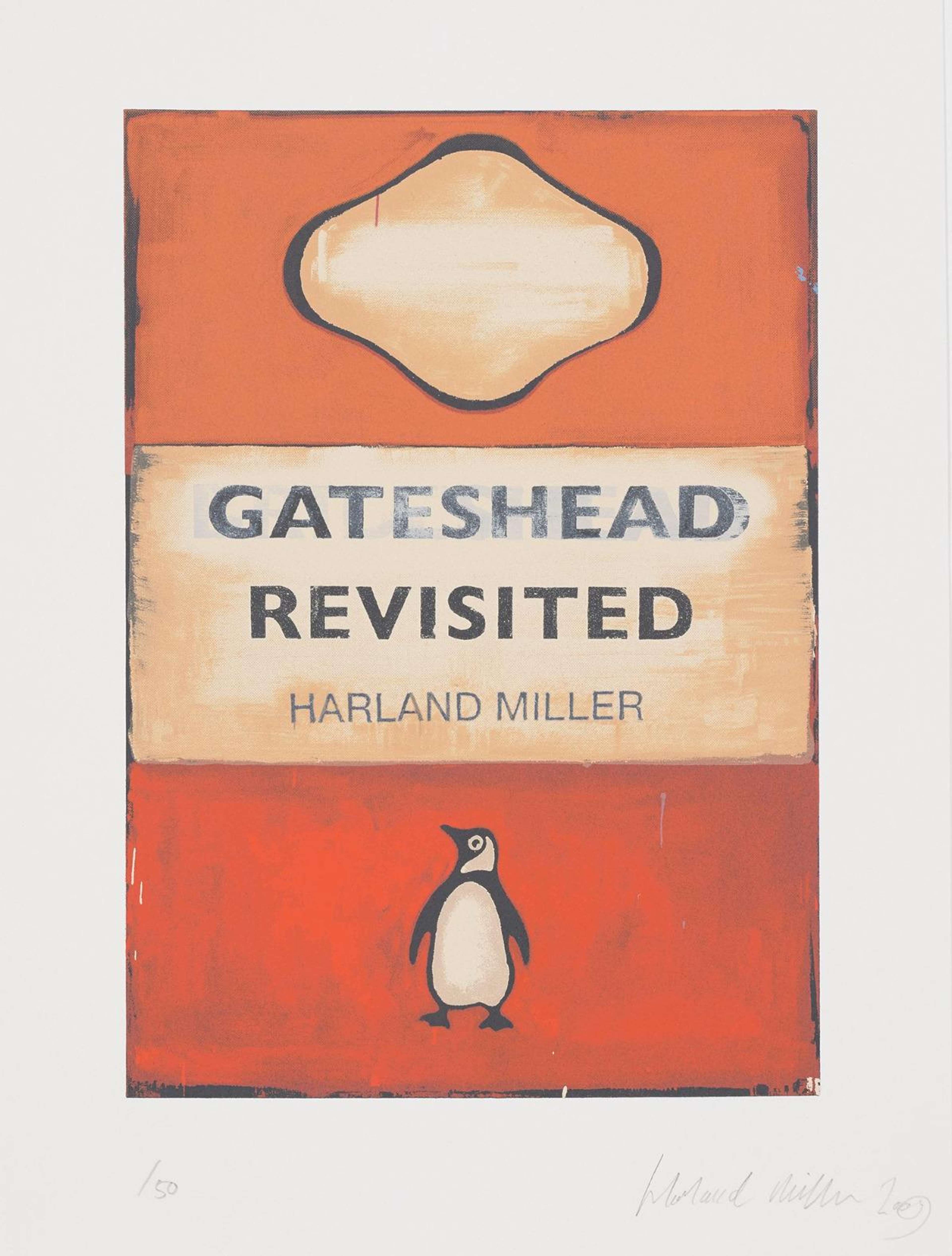
Gateshead Revisited

Gateshead Revisited
Signed Print
Harland Miller
£3,750-£5,500
$7,500-$11,000 Value Indicator
$7,000-$10,000 Value Indicator
¥35,000-¥50,000 Value Indicator
€4,300-€6,500 Value Indicator
$40,000-$60,000 Value Indicator
¥780,000-¥1,140,000 Value Indicator
$5,000-$7,500 Value Indicator
There aren't enough data points on this work for a comprehensive result. Please speak to a specialist by making an enquiry.
40 x 30cm, Edition of 50, Screenprint
Auction Results

Track auction value trend
Meaning & Analysis
Executed in 2009, Gateshead Revisited belongs to artist Harland Miller’s iconic series of works inspired by the Penguin book covers. A reimagination of Evelyn Waugh’s 1945 novel Brideshead Revisited, it was made to coincide with his solo exhibition, Don’t Let The Bastards Cheer You Up, at The Baltic in Gateshead in 2009. It was featured alongside other sarcastic re-workings of other popular book titles specific to the North East of England - where Miller was born and raised. Drawing upon his Northern roots and steeped in British heritage, Miller’s work simultaneously celebrates a treasured part of his country’s national aesthetic identity, whilst forging a fresh interpretation of the paperback aesthetic that catapults it straight into contemporary culture, reimagined in a new context with bold, fresh text. With painterly brushstrokes and dripping colour, the effect of these works is one of an ageing paperback infused with artistic vigour.
Gateshead Revisited is a fictitious title based on the artist’s homeland, whilst at the same time referencing the 20th century Charles Ryder novel by Waugh, demonstrating a sophisticated self-conscious cultural, literary and artistic awareness. It dominates the composition, but despite its obvious connotations, its simplicity leaves room for the viewer to make their own interpretations.
The faded cover, torn edges and stained, smudged pages nostalgically recall a lifetime history of love and use, that visually references our intimate, long-standing relationship with text and language, a visceral, physical connection between person and page that passes through the generations. The American painter Ed Ruscha is a clear influence for Miller, marrying text and image in a radical juxtaposition using slogans and phrases to compliment his paintings. Mark Rothko, too, is another such acknowledged source of inspiration for the British artist, whose work demonstrates the use of a palette of similar bands of colour such as the orange, red and white seen in Gateshead Revisited.